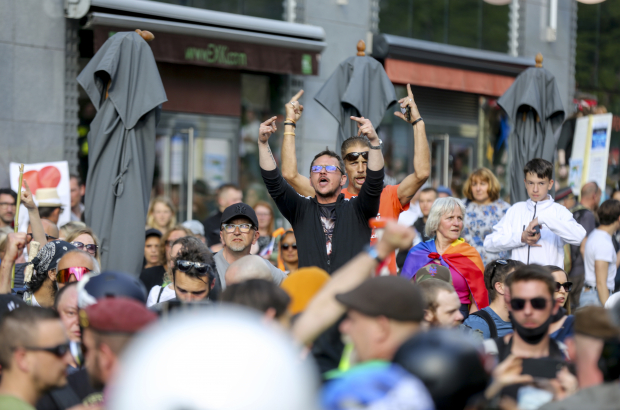- Daily & Weekly newsletters
- Buy & download The Bulletin
- Comment on our articles
Survey: growing dissatisfaction with democracy in Belgium
One in three Belgians believes that our society would be better managed if power were concentrated in the hands of a single leader, according to a survey on democracy commissioned by RTBF and carried out by the Kantar polling institute.
Less than one in five Belgians is satisfied with the way our democratic system works. More than half of the population thinks that our parliamentary democracy is malfunctioning, but that it remains the best system. And finally, almost one in four Belgians believes that our democratic system must be abolished and replaced by another.
The survey, taken by 1,004 respondents between 20-27 September, shows that the level of education of respondents influences the trust they have in the democratic system: people with a higher education degree are much less likely to want to abolish this system (16.4% against an average of 24%).
For their part, more than 60% of pensioners believe that our democracy is going badly, without suggesting an alternative.
When answering the question ‘Does the current political situation look more like a dictatorship or a democracy?’ with a scale ranging from 0 (dictatorship) to 10 (democracy), on average, two out of three Belgians consider that they live in a democracy. People over the age of 65 and university graduates make up the majority of this group. However, more than one in four citizens finds that our political situation is approaching a dictatorship.
The survey shows that the more a person is convinced of living in a dictatorship, the more they want to change the system. Worryingly, when faced with the question of how and in what form this change should take, more than one in three Belgians, 37.4%, agreed with the statement ‘Our society would be better managed if power was concentrated in the hands of a single leader.’
It is especially the young, the unemployed, and workers and people with a primary or lower secondary diploma who want a strong regime. One of the striking figures of the survey is the percentage of young people aged 25 to 34 who agree with this statement. Nearly 47% of these young people agree or totally agree with the idea of having a dictatorship.
The latest survey echoes that of a similar poll in 2018 that revealed that a quarter of young voters between 18 and 23 years old no longer believed in democracy and would prefer an authoritarian leader.
What this new data also reveals, is that the majority of those who believe that our democratic system must be abolished are in favour of a strong and centralised power.
A difference is also perceptible between the regions on the issue: nearly 43% of Walloons want a single leader to have power against 35% of Flemish and 32% of Brussels residents.
When asked to identify who makes the decisions that influence their daily life, respondents consider that the political world, financial markets, banks and the media are the actors that most influence their daily lives.
Even if citizens clearly point to the influence of the political world in their lives, the majority of Belgians (60%) believe that these same politicians no longer have any real capacity to improve their daily lives and that they can hardly change anything.
At the local level, mayors are not really that popular either: less than half of those who responded, 44%, find that their mayor is the politician who best meets their needs and expectations. Trust in local leaders is stronger amongst seniors and among people who believe that democracy works well.
More than seven out of 10 Belgians find that the state is improving their standard of living through the healthcare system. However, there are differences between the regions: less than 70% of Flemish people agree with this statement, compared to 83% of Brussels residents.

















